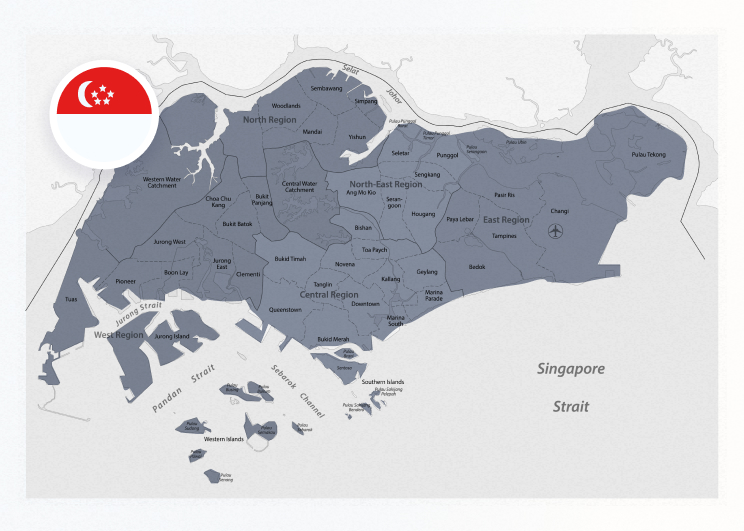Market Spotlight: Singapore



Singapore ranks 2nd out of 190 countries on the World Bank’s Ease of Doing Business ranking. Singapore is an attractive regional and international business partner because of its low tariffs and high trade volumes. Singapore also promotes a business-friendly environment by offering corporate tax incentives and exemptions.
Singapore has simplified business by focusing on transparency, payroll guidelines, and ease of hiring and filing, allowing a new business to be started in only 1.5 days. Singapore received $2,141.8 billion in foreign direct investment in 2020 and is expected to see an increase in FDI in the future.

Singapore is home to a highly skilled and educated workforce. The nation is still recovering from a labor shortage due to Covid-19 restrictions on foreign workers, but the recent relaxation of border crossing has helped strengthen the supply of lower-skilled workers, primarily working in the manufacturing and construction sectors.
The monthly wage has increased to S$6282 from S$5412 in Q3 of 2021. Singapore’s average monthly wage equates to roughly S$8.61 per hour or $6.32 in USD (as compared to the U.S., where wages average around $27.00 per hour as of March 2022). While Singapore has cheaper labor compared to the U.S. and China, labor is even more affordable in South Korea, Taiwan, Thailand, and other parts of Southeast Asia.

Singapore has one of the highest English proficiencies in the world and English is considered the main language spoken, along with Mandarin, Malay, and Tamil. English is the most widely spoken language among people under 50 because it is used in school instruction. It is based on British English and does not follow all American English’s grammatical rules.

Singapore is ranked 1st in the Heritage Foundation’s 2022 Index of Economic Freedom due to its highly developed free-market economy supported by a government free of corruption. Singapore is home to a very stable economy and political system.
The emphasis on transparency and promoting a business-friendly environment has contributed to the stability and success because of a strong rule of law, protecting property rights. Singapore’s rule of law is highly accountable and well-enforced, allowing for the country to focus on entrepreneurship and innovation.

In Singapore, meetings tend to be more formal and reserved. It is important to remain calm, patient, polite, and punctual. It is important to show respect when exchanging business cards. One must use both hands and read them carefully before putting them away and avoid putting them in a back pocket. The respect one shows a business card is indicative of the respect given to the individual one is doing business with.
Singapore is very relationship- and group-oriented. In business, decisions are made regarding long-term considerations and are made in a group, slowing down the negotiation process. Workplaces are hierarchical, based on age and position. It is important to determine the seniority of individuals in a meeting. Finally, it is important to remember that Asian nations are concerned with saving face, so corrective remarks must be made in an indirect manner.



